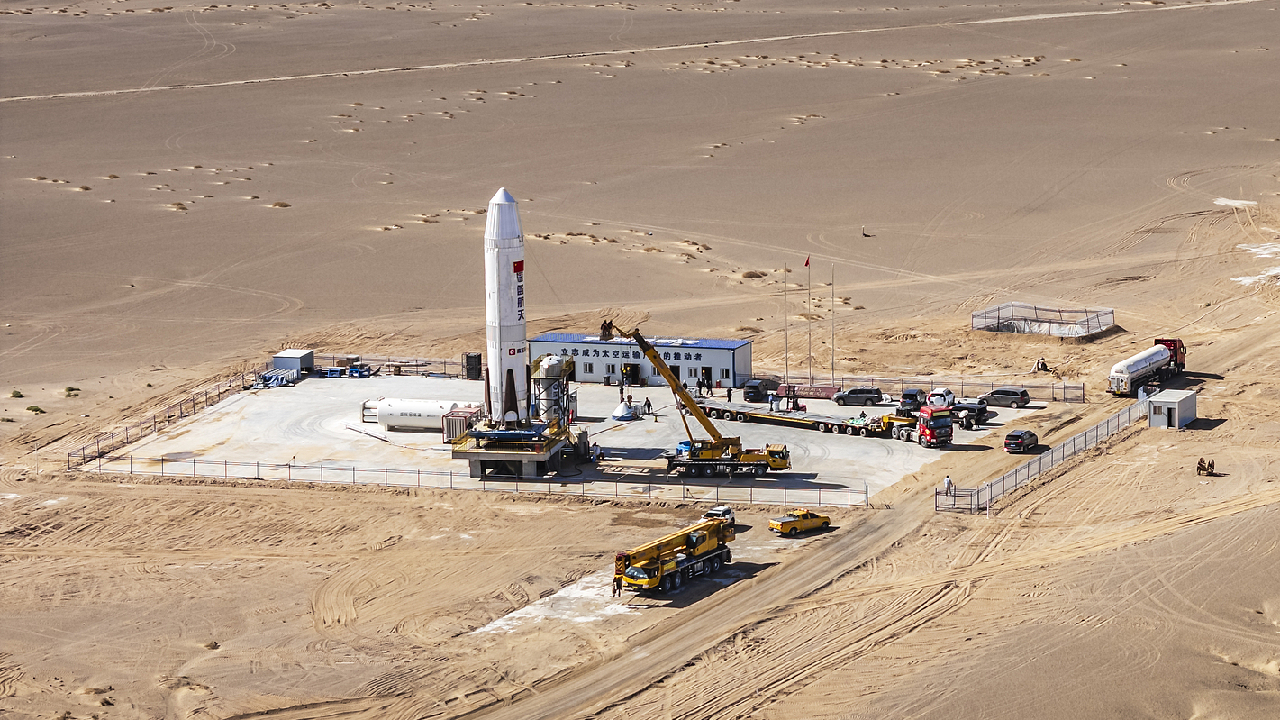China Aerospace Startup Prepares for Rocket Vertical Recovery Missions
Chinese rocket startup Deep Blue Aerospace (Deep Blue) announced plans for another high-altitude vertical recovery mission in November, following a recent failure of its reusable rocket Nebula-1 during the final stages of a test flight.

The Nebula-1, which is fueled by oxygen and kerosene, is Deep Blue’s inaugural reusable launch vehicle. During its first high-altitude vertical recovery flight test, the rocket successfully completed 10 out of 11 critical verification tasks on Sunday. However, it faced an anomaly during the landing phase that resulted in a fracture of its body.
Zhao Ya, the executive president of Deep Blue, explained the incident: "There was a problem with the engine's thrust control servo tracking command, causing the rocket to land at a height exceeding its design parameters. As a safety precaution, the rocket shutdown command was triggered, resulting in partial damage to its body."
Despite the less-than-perfect outcome, Zhao is optimistic that the test will yield useful data and insights that will help the team address existing issues and enhance the rocket's performance and reliability.
The 179-second test flight proceeded smoothly for the most part; the rocket excelled in takeoff, ascent, and descent, landing precisely at the center of the recovery field.
Shou Tuo, a senior observer in the aerospace industry, remarked on the overall success of the Nebula-1’s design and its liquid oxygen/kerosene engine's reliability.
Support from the public was notable, with Chinese netizens sharing encouraging sentiments. A Weibo user, Cao Meng-Aerospace, expressed, "I have always felt that it is more important to get cognition, rather than the result. Let's continue to work hard."
Looking ahead, Deep Blue plans to conduct a five-kilometer high-altitude vertical recovery flight in November to verify all outstanding verification items, as stated by Du Pengfei, the chief technical designer of Nebula-1.
Upon completing this five-kilometer test, the company will determine an appropriate time to perform a 100-kilometer vertical recovery flight test within the next month or two. Nebula-1's first orbital and recovery mission is also scheduled for the first quarter of 2025, according to Du.
The Nebula-1 has a diameter of 3.35 meters and a first stage height of approximately 21 meters. It is equipped with nine liquid engines, all independently developed by Deep Blue and constructed using 3D printing technology.
The rocket is intended for satellite constellation networking, space cargo supply, and scientific experiments. Zhao highlighted the significance of reusable rocket technology in reducing the costs associated with space exploration.
He stated, "Short-term setbacks will not affect our long-term development, but will accelerate the process of technology maturity and commercialization. High risk in the space field requires us to be capable of coping with failures."
Since 2014, China's commercial space industry has experienced rapid growth, spurred by government efforts to open the sector to private investment.
Media reports indicate that in 2023 alone, more than 10 successful launches were accomplished by private commercial spaceflight companies in the country.
Additionally, the development of commercial spaceflight was identified as a key area for emerging industries in the government's work report for 2023.
Another independently developed reusable test rocket, Zhuque-3, successfully completed a 10-kilometer vertical takeoff and landing flight test on September 11.
Shou Tuo emphasized the crucial importance of achieving rocket reuse in orbital missions for domestic private space companies aiming to make their mark in the space market, noting, "It is noteworthy that newcomers in China's commercial space sector may face multiple pressures from funding, market share competition, and media attention."
Rohan Mehta for TROIB News
Discover more Science and Technology news updates in TROIB Sci-Tech












